Hillary Peckham is COO of Etain Health. Her high-energy leadership style and contributions to Etain’s strategic planning resulted in Etain’s original success in attaining a medical marijuana license in New York State. Hillary’s leadership of Etain and contributions to the company’s license application made her the youngest individual to be awarded a medical marijuana license in the country.
Hillary is a graduate of Hamilton College and the Dartmouth Tuck-Bridge School of Business. Hillary’s passion for the medical cannabis industry comes from her own experience with chronic pain and muscular atrophy. After a failed hip surgery, Hillary spent two years unable to walk and suffers from permanent atrophy. Hillary has a strong interest in alternative therapies that provide palliative care for those enduring long-term suffering.
Thank you so much for doing this with us! Can you tell us the “backstory” about what brought you to the cannabis industry?
Etain is definitely a labor of love but I think it was really brought about by a couple different things all lining up at the same time.
My grandmother passed away from ALS in 2014 and my mother, Amy, spent a significant amount of time in end of life care with her before she passed. I think that experience was really eye-opening for Amy in terms of showing her what terminal illness looks like between medication, contra-indications, and symptom management and it suggested the possibility of medical marijuana as a means to ease that experience. At the time there was no legal option to pursue marijuana products in New York, but in that same year Governor Cuomo also passed the Compassionate Care Act which basically set the stage for medical marijuana regulations to be written in New York.
The Compassionate Care Act also happened to coincide with my youngest brother heading off to college and with me graduating from college and completing an intensive business certificate at the Tuck School of Business. So we were in the situation of just having gone through a really heart-wrenching process of loss in the family which could have benefited from medical marijuana: Amy being basically an empty nester, me being ready to enter the work-force, and New York having just passed its initial medical marijuana regulations. All of this coalesced into that first idea to start researching the medical marijuana industry and Etain really sprang from that.
Can you share the most interesting story that happened to you since you began leading your company? Can you tell us what lesson you learned from that?
I think that the greatest moment for us was after spending months and months in our startup, actually realizing the difference our products could make for people’s quality of life. One of our first patients was a 12 year old who suffered from hundreds of seizures a day. After a few months of treatment said her first words and had her seizures cease. Another patient I saw just recently had an old injury that made his hand unusable due to enormous amounts of swelling and pain. In three months, he had almost complete function in his hand, had lost 40 pounds, and told me he felt like “a new person”. Having an impact in somebody’s life is an unbelievable experience and I’m continually surprised by the benefits people are experiencing from our products.
Can you share a story about the funniest mistake you made when you were first starting? Can you tell us what lesson you learned from that?
A big part of what made us so successful in the application process in New York was the emphasis we placed on building local support for our business. When we submitted our application to the state we did it with a full list of letters of support, which we got through many months of effort spent in the communities surrounding our stores and manufacturing facility. Arguably the most important one of those letters, for our manufacturing facility in Upstate New York, left me with one of the funniest and (at the time) most embarrassing moments of my career so far. I was presenting our story to the town planning board in Chestertown NY, talking about the importance of having legal access to these kinds of medications for patients like my grandmother who had recently passed away. To hammer the importance of legalization of cannabis as medication home I referenced the fact that the “only illegal thing my grandmother had ever done was speed,” by which I obviously (to me) meant that she sped while driving. However, in the ears of my audience, what they heard was me saying that my grandmother was addicted to “speed” (i.e. methamphetamine). They were definitely amused at the double meaning, obviously I was mortified.
Do you have a funny story about how someone you knew reacted when they first heard you were getting into the cannabis industry?
While this story is not about me, it is one of my favorite moments with my mother. At a business lunch with a potential partner we explained our vision for Etain and the company we wanted to build. Knowing how competitive and complex the licensing process for cannabis companies in New York was, the man turned to my mom and said “You’ve got to have big balls to apply in NY”.
My mother, who’s rather heavy-set, looked down at her chest and back to the man and simply responded “I’ve got ‘em.”
None of us are able to achieve success without some help along the way. Is there a particular person who you are grateful towards who helped get you to where you are? Can you share a story?
I never expected to work with my family and every day I grow more grateful for the opportunity. Not many people get the chance to do what they love with all of the people they love.
Are you working on any new or exciting projects now? How do you think that will help people?
We’re constantly working on building new products and refining our old ones. Right now we’re focused on improving the user experience when it comes to cannabis. I think the level of complexity in the cannabis industry (between strain choice, device operation, lingo, etc.) is really high and that this can be a barrier to entry for people that would otherwise really stand to benefit from medical cannabis products. So this is a very exciting project for us, and it’s something that I think requires a lot of attention in the cannabis industry. On the whole we seem to be very fixated on “insider” knowledge which is not necessarily welcoming to someone that is new to the space as a consumer.
 Thank you for all that. Let’s now jump to the main core of our interview.
Thank you for all that. Let’s now jump to the main core of our interview.
Despite great progress that has been made we still have a lot more work to do to achieve gender parity in this industry. According to this report in Entrepreneur, less than 25 percent of cannabis businesses are run by women. In your opinion or experience, what 3 things can be done by a) individuals b) companies and/or c) society to support greater gender parity moving forward?
I 100% agree with this. I think that the trend in cannabis has been so dramatic in large part because we saw so much diversity in ownership early on. The reality is that as markets and the size of public investments in cannabis get bigger then you will see less diversity in ownership as well as management in the cannabis industry. In terms of what individuals, companies, and society can do to improve this issue, I’ll address them each below:
-
- At the individual level I think it’s very important for people to vote with their wallets. If individuals, as the paying consumers of cannabis products, decide that they would prefer to purchase and use products made by companies with diverse ownership/leadership/management then I think at a minimum this will encourage larger, less-diverse entities to begin recruiting diverse candidates for positions within their organizations. The ownership issue, I am not convinced, can be solved at the individual level.
- At the company level I think there is a lot that can be done to provide women and other diverse candidates access to the experience and opportunities required for further career advancement and, potentially, the skills required to start and manage a cannabis business somewhere down the line. There is no end to the number of qualified and highly capable female candidates for positions within these organizations, but time and again the largest barrier to professional progress is a lack of access to opportunities to learn. Cannabis is relatively new from a traditional organizational perspective, and as such there has not been enough time to establish “formal” learning channels to train and create cannabis executives (although, this is clearly on the way as schools like the University of Maryland, Baltimore recently created a “Cannabis Masters Program”). This means that the number one pipeline to develop new cannabis employees and executives is through access to jobs within the industry. The gateway to this access lies within the control of cannabis companies like ours and especially the larger, public organizations some of whom employ thousands of people. So, to put it short, cannabis companies need to recognize the immense value they can provide to diverse job applicants by providing opportunities to learn in a new and growing industry. Our company currently employs women in over 60% of its management positions, this is a direct result of us having made the commitment to try and promote women in cannabis through our hiring practices.
- I am going to interpret the “societal level” as including the decision-making that goes into how states establish their recreational and medical licensing programs for cannabis. At this level I think states need to place significantly more emphasis on local ownership and the diversity of organizations to which they provide licenses. The current regulatory model places the majority of the emphasis in awarding licenses on the basis of previous, legal experience in the cannabis industry. This preferentially prioritizes organizations that have operations in other states or organizations with the resources to recruit management teams that have the pre-requisite formal experience. The result of this is you end up with large, multi-state organizations holding licenses in the majority of the states with a recreational or medical program. These organizations are exactly who we are talking about when we note the trend towards less and less diversity in ownership and management of cannabis companies in the past 5 years. As an example, in New York there are 10 licenses in the current medical program of which only 1 is women-owned (us) and only 1 is still locally based (us). Every other operator in that market is either a publicly-traded multi-state organization or a privately-held multi-state organization looking to become publicly-traded.
You are a “Cannabis Insider”. If you had to advise someone about 5 non-intuitive things one should know to succeed in the cannabis industry, what would you say? Can you please give a story or an example for each?
There are a few major challenges in the cannabis industry, I’ve discussed a few below.
First, I think it’s important to understand the real-estate complexities of cannabis. Many states have zoning requirements and restrictions on where to cite a dispensary. For instance, in NY, a dispensary must be at least 1,000 feet from a place of worship or school on the same street/avenue.
Next, it’s critical to understand the difficulties with financing and tax exposure for a cannabis company. For instance, we would probably be paying about 50% of the taxes we currently incur because cannabis companies can not make standard business deductions do to federal tax code 280E. In addition to a large tax burden, cannabis companies also struggle to find banking and financing.
Can you share 3 things that most excite you about the cannabis industry?
- There is massive potential for innovation in new products and processes in this industry.
- Cannabis lies at the intersection of consumption for pleasure and consumption for science-backed health and wellness benefit. There are not many industries that legitimately occupy both of these territories at once.
- Uncertainty! The need to adapt and change is very exciting to me, and there are not many industries with as much call for adaptation as cannabis.
Can you share 3 things that most concern you about the industry? If you had the ability to implement 3 ways to reform or improve the industry, what would you suggest?
- I am concerned that we are unwittingly creating monopolies that will control the cannabis industry into the future. Right now, there are only a handful of companies with a nation-wide footprint, and they hold the majority of the organizational knowledge required to successfully compete for licenses at a regulatory level. If this trend holds true it would mean that by the time there is a federal change in status for cannabis (allowing transport across state lines) there will already be a select few organizations with the nationwide presence to take advantage of the new federal status. This will make competition extraordinarily difficult for mid-market and smaller businesses in the industry that are focused only on local state operations. I think prioritizing local ownership and commitments, like I mentioned above, could potentially help combat this issue.
- The lack of standardized regulation on product consistency and quality is very concerning. It creates a cost differential in the production of cannabis products where some states with looser regulations have products at a lower price point but also lower quality (in terms of sterility, consistency, grade of ingredients, etc.) compared to other states with a much higher price point. The features of the product that go into these pricing differences are more or less invisible to consumers unless some defect in quality highlights the risk of a lower cost item produced to lower standards (as in the recent vaping crisis). Transparent oversight around what the standards for manufacturing cannabis products will definitely alleviate this issue, but I don’t see that happening until there is a change in federal status.
- We’re definitely concerned about the future landscape of ownership in the cannabis industry. More and more it feels like the cannabis industry is turning into a playground for investment bankers, which I don’t think serves the consumer or the employee well in terms of building a sustainable market.
What are your thoughts about federal legalization of cannabis? If you could speak to your Senator, what would be your most persuasive argument regarding why they should or should not pursue federal legalization?
I think federal legalization would be a great thing for standardizing cannabis regulation across states. The strongest arguments for federal legalization would, for me, be:
- You have a standard set of quality controls that determines what products can be sold and what ingredients can be used to manufacture those products. This benefits consumers greatly.
- You could abolish the current federal tax penalty on cannabis businesses (Called 280E for those unaware, which results in the majority of non-manufacturing related company expenditures not qualifying for standard business deductions). This would benefit small business owners on the dispensing end of the spectrum as almost all of their expenses fall under the 280E tax penalty. This would, in turn, help to bring prices in the legitimate cannabis industry down significantly to compete with prices from the “illegitimate” cannabis industry.
- Federal legalization opens up more institutional sources of funding for cannabis businesses (like a bank loan, as an example) which benefits smaller businesses looking for access to capital.
Today, cigarettes are legal, but they are heavily regulated, highly taxed, and they are somewhat socially marginalized. Would you like cannabis to have a similar status to cigarettes or different? Can you explain?
I think the marginalization, regulation, and taxation of cigarettes in large part has to do with the narrow range of benefits and uses there are for that product. Cigarettes are 100% a consumption for pleasure product and they have a well-established negative impact on the health of users. Cannabis, on the other hand, has a myriad of uses and can be turned into an innumerable number of products which do not involve inhalation of smoke. This opens up many more pathways for cannabis as a therapeutic product which I think makes its status significantly different from cigarettes. I do think that comprehensive regulation on cannabis is needed to establish the boundaries of the industry in terms of manufacturing and ingredients, but I don’t think that cannabis used for medical benefit deserves the same kind of penalizing tax that you see on the sale of cigarettes.
Can you please give us your favorite “Life Lesson Quote”? Can you share how that was relevant to you in your life?
“Your most unhappy customers are your greatest source of learning.” — Bill Gates
At Etain we strive to be customer centric and learn how to best serve our patients. Because we listen to our patients we have become known for providing superior customer care and have the most diverse set of products that are easy to use and understand.
You are a person of great influence. If you could inspire a movement that would bring the most amount of good to the greatest amount of people, what would that be? You never know what your idea can trigger.
I have suffered from chronic pain related to a hip surgery for most of the past 10 years. I know that there are countless Americans that are in similar situations and live with greater levels of pain to me on a daily basis. Many of them turn to regular opioid use as a way to eradicate their symptoms. I think the “find and eradicate” model of symptom management, which is prevalent in the pharmaceutical and medical industries, does not work well for managing quality of life for many people with chronic illness. Having to choose between managing your pain and avoiding addiction or loss of memory or any of the other various risks associated with regular opioid use does not make for a good model to manage long-term pain symptoms. I think, personally, that approaching pain and other similar chronic symptoms from the perspective of holistic management through lifestyle changes coupled with semi-regular use of medications (like cannabis) that provide moderate symptom management with significantly fewer risks of serious side effects is a much better model to improve quality of life for most people.
Thank you so much for the time you spent with this. We wish you only continued success!


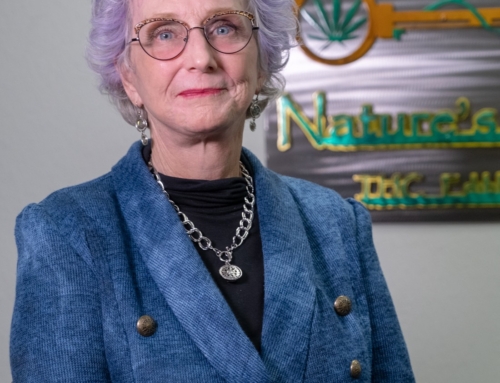
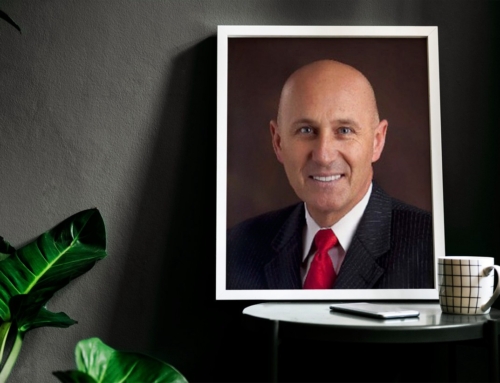
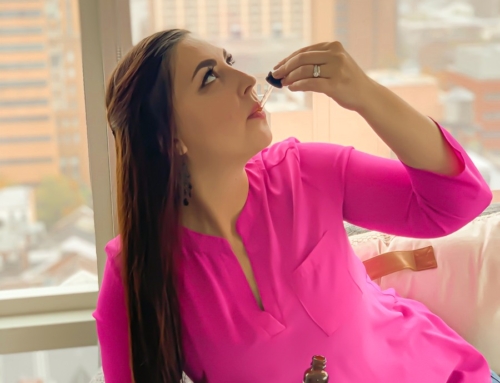

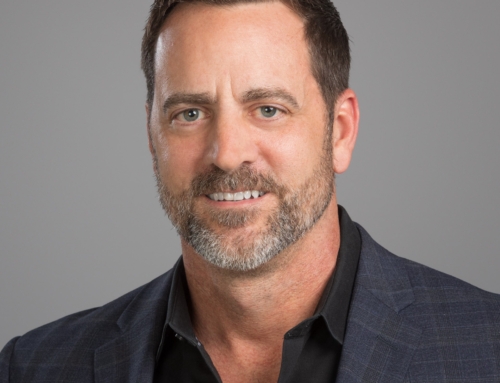
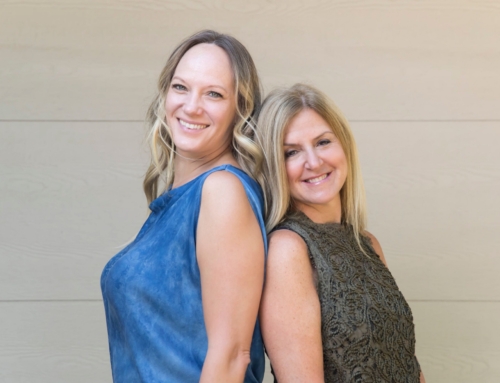
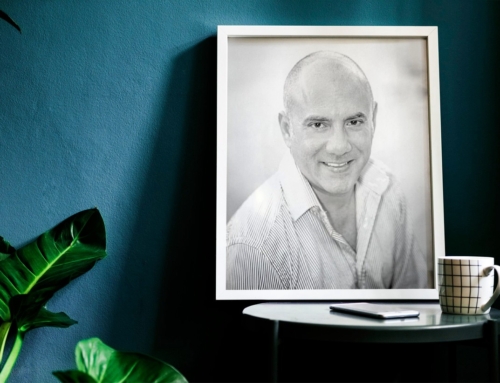
![“The potential to help people [in this industry] is enormous, but there’s still so much to learn.” – Ramon Alarcon, Witi](https://lakesideremedy.com/wp-content/uploads/2020/12/1thj5ekUyxQ69iLz1JJyODg-scaled-e1607882756286-500x383.jpeg)
